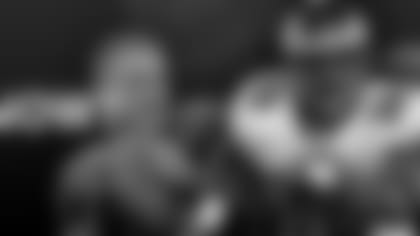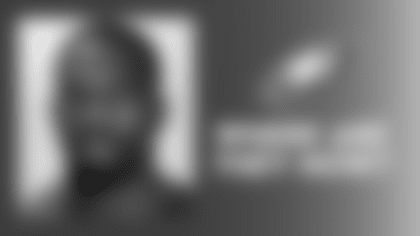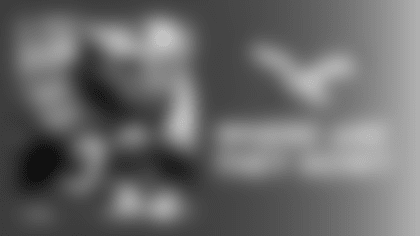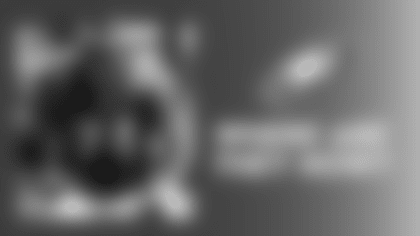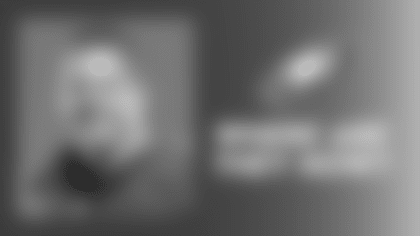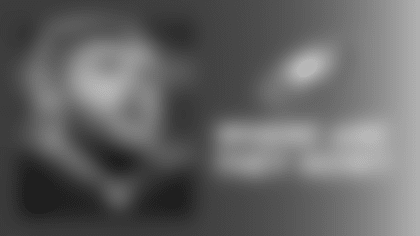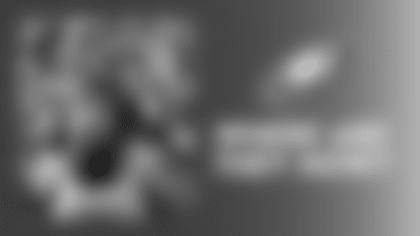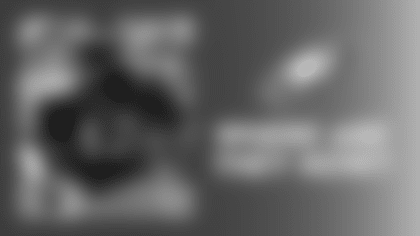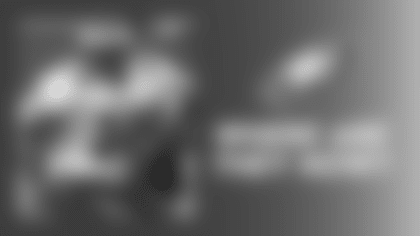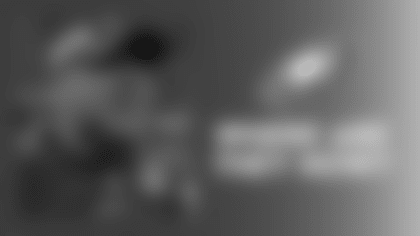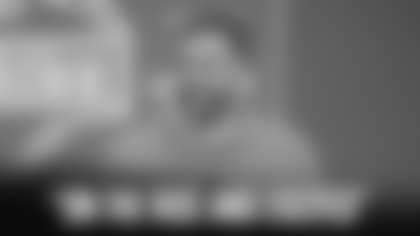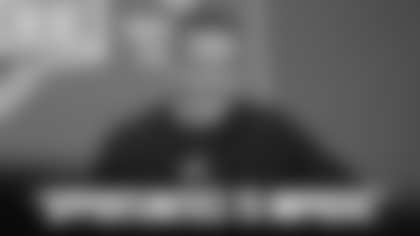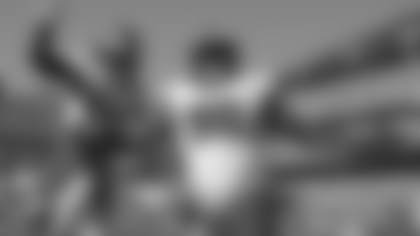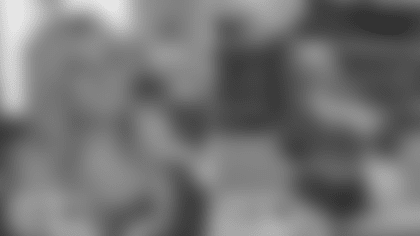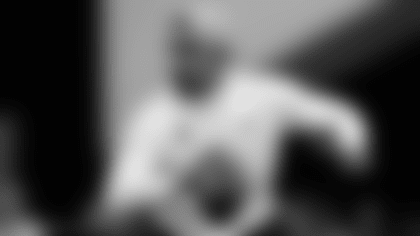New Yorkers have been known for a lot of things. But as defensive end Hugh Douglas found out after being traded from the Jets to the Eagles in 1998, being accurate may not top the list.
"I didn't know anything about Philadelphia and I thought it was a dirty city because you hear what other people say and you automatically assume that's just how it is. They're crazy down there, yadda, yadda, yadda," said Douglas, a three-year veteran at the time of the deal. "And I remember flying into Philadelphia and I said, 'OK, here we go.' But as soon as I jumped off the plane, I was greeted with a warm welcome because the fans knew that you were coming and they were excited about their football team. I'm from the Midwest originally, so coming from the Midwest to New York to Philadelphia, it was a little bit of a culture shock."
Philadelphia's culture, however, didn't monopolize the shock factor. The Eagles opened the 1998 season with four losses in September. And by losing two of the next three games, October was not a lot better. Douglas, on the other hand, had a terrific month.
He accumulated seven sacks – 4.5 during a game against San Diego which tied Clyde Simmons' team record – among 20 tackles, and was named as the NFC's Defensive Player of the Month.
Did Philadelphia's lousy start of a just-as-lousy 3-13 season, coupled with his great start to a then-career-high and team-leading 12.5 sacks, trigger mixed emotions about playing in a new home?
"No, I didn't," Douglas said. "Because the best part about being in Philadelphia is that I played with a great group of guys. [Head coach] Ray Rhodes did a great job of assembling some guys that really loved to play the game and didn't mind going out there and laying it on the line for each other.
"[The team's camaraderie] was huge. I think that was one of the things that really helped us get through that season, because that was rough. I can remember talking to [linebacker] James Willis and saying, 'No matter what happens, we've got to fight our way to the end. There's no such thing as giving up.' And that's the way we played."
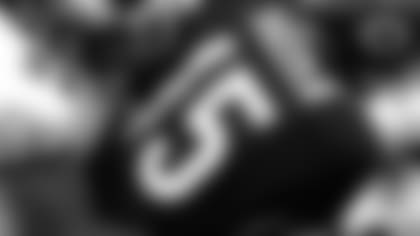 |
| DE Hugh Douglas |
The following season, Douglas and his teammates played for a new head coach, Andy Reid, and, well, things began to change.
"We had some good players, but I don't think we had any direction. And I think when he came, he felt that he had something to prove," said Douglas. "We were going through two-a-days and we were just banging! We were hitting! We went live the very first day he was there. We thought he was crazy because we didn't know what he was doing. And I remember standing in the huddle and I'm like, 'What the hell's wrong with this guy? What's he doing?' And he heard me! And he told me, 'Quit your bitching! Don't you know you're getting better?' And I'll never forget that because that was when I said, 'OK, I see. He has a plan.'
"That's when we knew that he was serious about winning. He was trying to weed out the guys that were going to go to battle for him and the guys that were going to lie down. He wanted to find out who could play for him and who couldn't."
Two words: Douglas could.
After a torn biceps tendon sidelined him for all but four games in 1999, Douglas returned for the 2000 season and helped the Eagles post their first winning record in four years by recording a career-high 15 sacks and earning the first of three consecutive trips to the Pro Bowl. The key? Surprisingly, it was Philadelphia's top draft choice that year, defensive tackle Corey Simon.
"When Corey came into the NFL, he could play, but he was a little arrogant," Douglas said. "I remember him telling me this as bright as day, 'Hey, man. Why don't you let me take that No. 53 jersey to the Pro Bowl if you're not going to do it?' That was Corey. He and I are the best of friends now because he was the one that I could honestly say lit the fire underneath me and made me elevate my game."
The next elevation would be reached by knocking on the door to the Super Bowl with consecutive trips and losses in the 2001 and '02 NFC Championship Games. And while the Eagles once again played for the conference title in '03, Douglas did not. That's because after becoming a free agent, he found himself on the roster of the Jacksonville Jaguars.
"There were several conflicting stories about that, but I wanted to remain an Eagle," said Douglas. "And somewhere along the line, they say that my agent didn't get them all the information. But I still say to this day, I was only a phone call away. If there was something that needed to be discussed, they could have called me directly. And I waited a week before I even signed with Jacksonville. And then after I agreed to sign with them, somebody [from the Eagles] called, but it was too late at that point."
And while there are countless bridges between Florida and Pennsylvania, evidently Douglas didn't burn any of them because he was back in Philadelphia after just one season.
"I got released by Jacksonville and a few other teams called, but I knew that this was my last go-around. And so it was a decision. Do you go and try to get a couple more dollars or do you go back home and have a chance to be a part of history? I honestly felt that everything happens for a reason and for me to leave for one year and come right back, that was just… Who does that happen to?"
Very few. And Douglas did become a part of the game's history when the Eagles won the 2004 NFC title and played in Super Bowl XXXIX against New England. The Patriots came out on top, 24-21.
"I knew going into that season that Donovan [McNabb] was on fire and the defense was playing well. It just felt good to be back in the city of Philadelphia. You just knew going into every game that you were going to win. You just didn't know by how much.
"And to get to that game and lose by three points – that hurt. But in a nutshell, being that that was my last year in the NFL, I wouldn't trade that for anything. Because you work hard and you go through all those training camps and everything, and to be on that field on Super Bowl Sunday… One of the only two teams playing… That's a feeling that I wouldn't trade for the world."
Douglas' world is still in Philadelphia with his wife, Simona, and children: Kayla and Hugh. And now a member of the media, he works in radio as a part of WIP's morning crew; and in television at FOX 29, where he's on the "Good Day Philadelphia" morning show.
"As far as radio is concerned, it gives you a chance to be in touch with the fans and the fan base. And it allows you to be a part of football still because I think a lot of guys, when they retire, you miss that football fix," Douglas said. "When you hear some people critique a team, they're very, very harsh. But I try to be fair and talk about what I've seen, but at the same time, show my face [around the team's NovaCare Complex] so that I can really find out what's going on. What the plan was and why it did or didn't go well.
"And with television, I do that three or four times a week and I get to do different segments, so it allows me to be more than just a football analyst."


